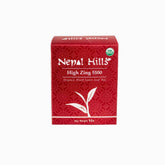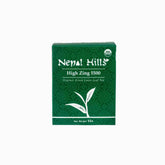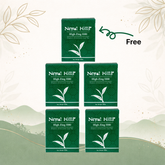Milk and Tea - A tasty affair
It is without a doubt that the vast proportion of people around the world consume milk tea. Many of the people who enjoy black tea tend to add milk to it. But do you ponder why tea, especially black tea, mixes well with milk? Let's explore.

Some sources describe black tea as harsh, pointing to how it leaves your mouth feeling dry and slightly bitter afterward. This comes from tannins, which are natural compounds found within tea leaves. While tannins give black tea its signature boldness, they can be a little too aggressive at times. And that’s where milk comes in handy.
When you add milk to tea, the milk proteins will bind to the tannins, resulting in a softer and less biting beverage. This makes the tea smooth and creamy, making it more enjoyable to sip. Across cultures, from Britain with it’s breakfast tea, to India and it’s famous masala chai, milk tea is enjoyed universally.
Does adding milk affect the tea’s health benefits? It is hard to give a definite yes to that. Some studies argue that adding milk reduces tea’s available antioxidants, but for most tea enthusiasts, that is a negligible difference. Adding milk still delivers the warm sensation that wraps around you like a blanket, while with a splash of milk losing some of the benefits.
For fans of bold flavored teas like Nepal Hills Premium Black Tea which is one of the strongest, adding milk can elevate the experience without losing the rich essence, just softening the flavor.
For a creamier texture, whole milk is ideal—it will add a smooth texture to your drink.
Ultimately, whether you enjoy tea with milk or without it, everything should revolve around what feels good to you. Therefore, the next time you prepare tea, feel free to add milk and enjoy the good aspects of both places.






